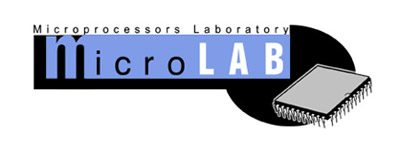
- This event has passed.
Tech Talk #10 – Improving Performance-Power-Programmability in Space Avionics with COTS Devices: Pose Tracking on Myriad2
January 29, 2021 @ 10:00 am - 11:30 pm
Την Παρασκευή 29/1/2021 και ώρα 10:00 EET (Greek Time) θα έχουμε την παρουσίαση για τα Fridays Tech Talks από τον υποψήφιο διδάκτορα Βασίλη Λέων με τίτλο:
“Improving Performance-Power-
Programmability in Space Avionics with COTS Devices: Pose Tracking on Myriad2″
Η παρουσίαση θα γίνει μέσω webex στο παρακάτω link Webex.
Ακολουθεί μία σύντομη περίληψη της παρουσίασης:
“The advent of powerful edge devices and AI algorithms has already revolutionized many terrestrial applications, however, for both technical and historical reasons, the space industry is still striving to adopt these key enabling technologies in new mission concepts. In this context, we evaluate an heterogeneous multi-core SoC processor for use on-board future spacecraft to support novel, computationally-demanding DSP and AI functionalities. Given the importance of low power consumption in satellites, we consider the Intel Movidius Myriad2 SoC and focus on SW development and performance aspects. We design a methodology and framework to accommodate efficient partitioning, mapping, parallelization, code optimization, and tuning of complex algorithms. Furthermore, we propose an avionics architecture combining this Commercial-Off-The-Self (COTS) chip with an FPGA device to facilitate, among others, interfacing with traditional space instruments via SpaceWire transcoding. We prototype our architecture in the lab targeting Vision-Based Navigation (VBN) tasks. We implement a representative computer vision pipeline to track the 6D pose of ENVISAT using Megapixel images during hypothetical spacecraft proximity operations. Overall, we achieve 2.6-4.9 FPS with only 0.8-1.1W on Myriad2, i.e., tenfold acceleration versus modern rad-hard processors. Based on the results, we assess various benefits of utilizing Myriad2 instead of conventional FPGAs and CPUs. “

